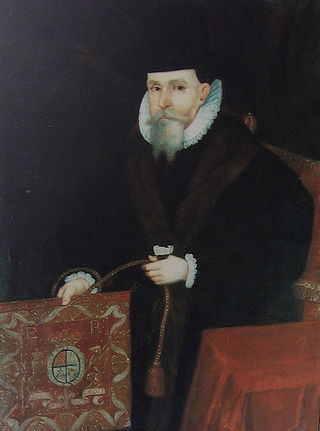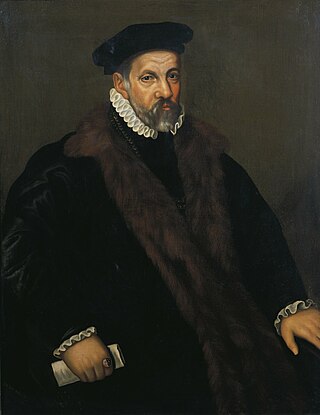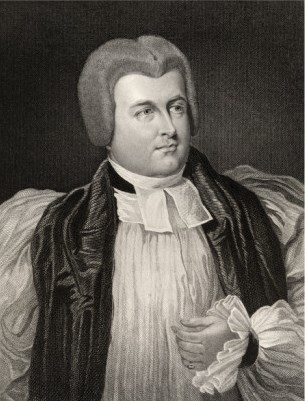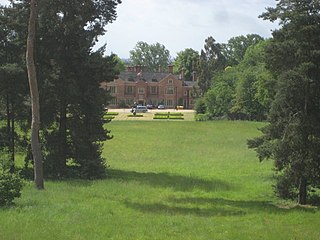
Sir Francis Walsingham was principal secretary to Queen Elizabeth I of England from 20 December 1573 until his death and is popularly remembered as her "spymaster".

Worcester Cathedral, formally the Cathedral Church of Christ and Blessed Mary the Virgin, is a Church of England cathedral in Worcester, England. The cathedral is the seat of the bishop of Worcester and is the mother church of the diocese of Worcester; it is administered by its dean and chapter. The cathedral is a grade I listed building and part of a scheduled monument.

Adam Loftus was an English Anglican bishop who was Archbishop of Armagh, and later Dublin, and Lord Chancellor of Ireland from 1581. He was also the first Provost of Trinity College Dublin.
William Knight was the Secretary of State to Henry VIII of England, and Bishop of Bath and Wells.

Arthur Lake was Bishop of Bath and Wells and a translator of the King James Version of The Bible.

Herbert Croft (1603–1691) was an English churchman, bishop of Hereford from 1661.

Thomas Wilson (1524–1581), Esquire, LL.D., was an English diplomat and judge who served as a privy councillor and Secretary of State (1577–81) to Queen Elizabeth I. He is remembered especially for his Logique (1551) and The Arte of Rhetorique (1553), which have been called "the first complete works on logic and rhetoric in English".
Robert Wilmer Woods,, known as Robin Woods, was an English Anglican bishop. He was the Bishop of Worcester from 1971 to 1982. He previously served as Archdeacon of Sheffield from 1958 to 1962, and as Dean of Windsor from 1962 to 1970.
John Watson (1520–1584) was Bishop of Winchester in the 1580s.
Sir Thomas Heneage PC was an English politician and courtier at the court of Elizabeth I.

Sir John Herbert was a Welsh lawyer, diplomat and politician who sat in the House of Commons at various times between 1586 and 1611. He was Secretary of State under Elizabeth I and James I.
Richard Curteys (c.1532?–1582) was an English churchman. A native of Lincolnshire, after his education at St. John's, Cambridge he was ordained and eventually became Chaplain to Queen Elizabeth I. He was made the Dean of Chichester Cathedral and then Bishop of Chichester. Curteys was reputedly a promoter of preaching and the clerical improvement of Anglicanism. In Curteys' episcopate, the cost of supporting many residentiaries and providing hospitality, could not be funded by the relatively small income of Chichester Cathedral. Curteys remodelled the constitution to reduce costs. Despite the changes Curteys died penniless.
Meredith Hanmer (1543–1604) was a Welsh clergyman, known as a controversialist, historian, and translator. He was considered embittered, by the Lord-Deputy William Russell, 1st Baron Russell of Thornhaugh; but he appears now as a shrewd observer of the Protestant and nonconformist life of Ireland as founded around Trinity College, Dublin.

Robert James Carr (1774–1841) was an English churchman, Bishop of Chichester in 1824 and Bishop of Worcester in 1831.
John Banks Jenkinson was an English bishop who was the Bishop of St David's from 1825.

Sir George Fleetwood was an English politician who sat in the House of Commons at various times between 1586 and 1611.
Dr. Patrick Sheridan was the Church of Ireland Bishop of Cloyne between 1679 and 1682.
Sir Giles Sweit, sometimes spelt Sweet or Swett, was an English barrister and academic, Principal of St Alban Hall, Oxford, for many years, and also Regius Professor of Civil Law in the University of Oxford and Dean of the Arches.
Maliverey Catilyn was an English spy in Elizabethan England.

Philip Moger is an English bishop of the Catholic Church serving as auxiliary bishop in the Archdiocese of Southwark. He was ordained a priest for the Diocese of Leeds and served as the rector of the Basilica of Our Lady of Walsingham from 2020 - 2023.









